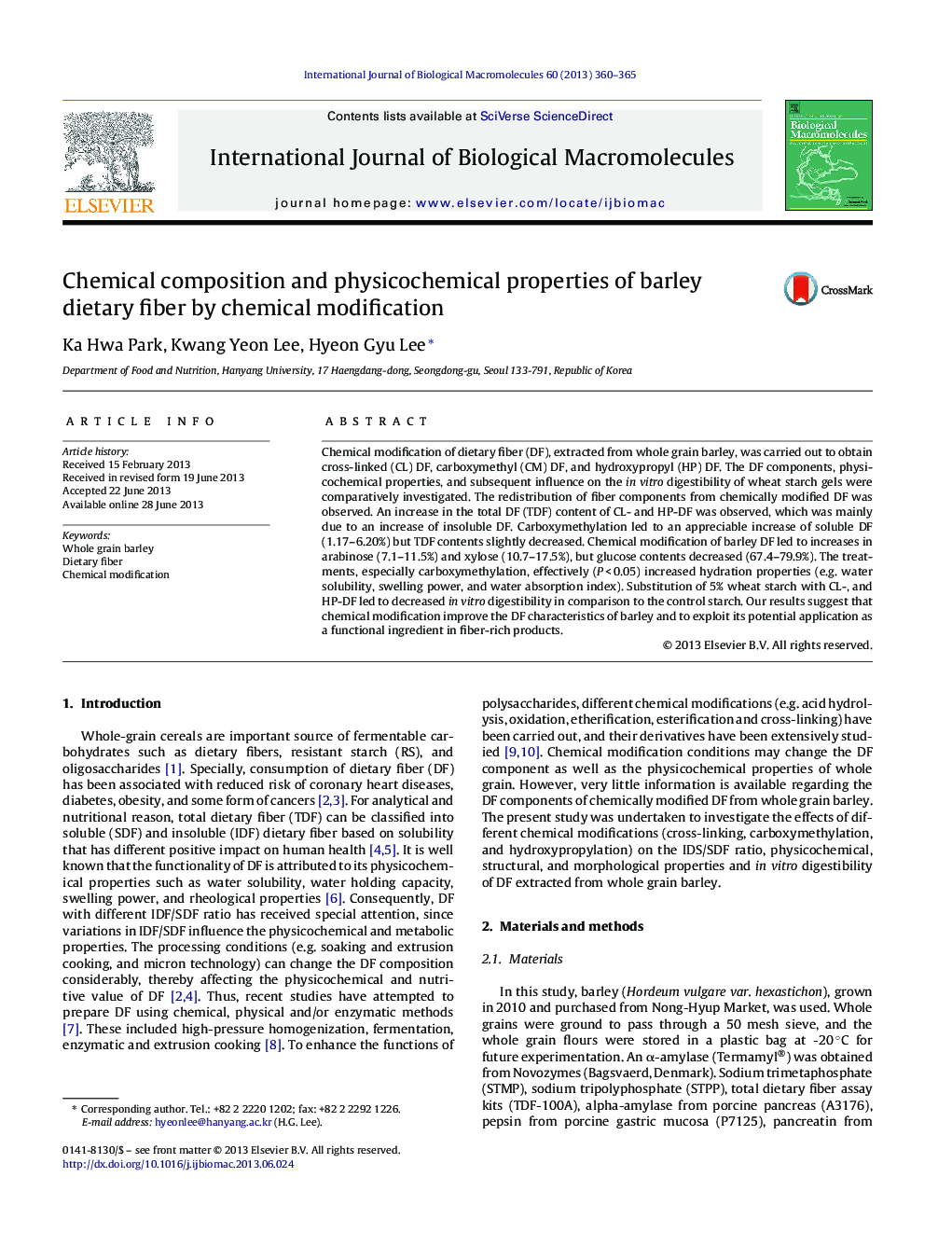| Article ID | Journal | Published Year | Pages | File Type |
|---|---|---|---|---|
| 8333456 | International Journal of Biological Macromolecules | 2013 | 6 Pages |
Abstract
Chemical modification of dietary fiber (DF), extracted from whole grain barley, was carried out to obtain cross-linked (CL) DF, carboxymethyl (CM) DF, and hydroxypropyl (HP) DF. The DF components, physicochemical properties, and subsequent influence on the in vitro digestibility of wheat starch gels were comparatively investigated. The redistribution of fiber components from chemically modified DF was observed. An increase in the total DF (TDF) content of CL- and HP-DF was observed, which was mainly due to an increase of insoluble DF. Carboxymethylation led to an appreciable increase of soluble DF (1.17-6.20%) but TDF contents slightly decreased. Chemical modification of barley DF led to increases in arabinose (7.1-11.5%) and xylose (10.7-17.5%), but glucose contents decreased (67.4-79.9%). The treatments, especially carboxymethylation, effectively (PÂ <Â 0.05) increased hydration properties (e.g. water solubility, swelling power, and water absorption index). Substitution of 5% wheat starch with CL-, and HP-DF led to decreased in vitro digestibility in comparison to the control starch. Our results suggest that chemical modification improve the DF characteristics of barley and to exploit its potential application as a functional ingredient in fiber-rich products.
Keywords
Related Topics
Life Sciences
Biochemistry, Genetics and Molecular Biology
Biochemistry
Authors
Ka Hwa Park, Kwang Yeon Lee, Hyeon Gyu Lee,
